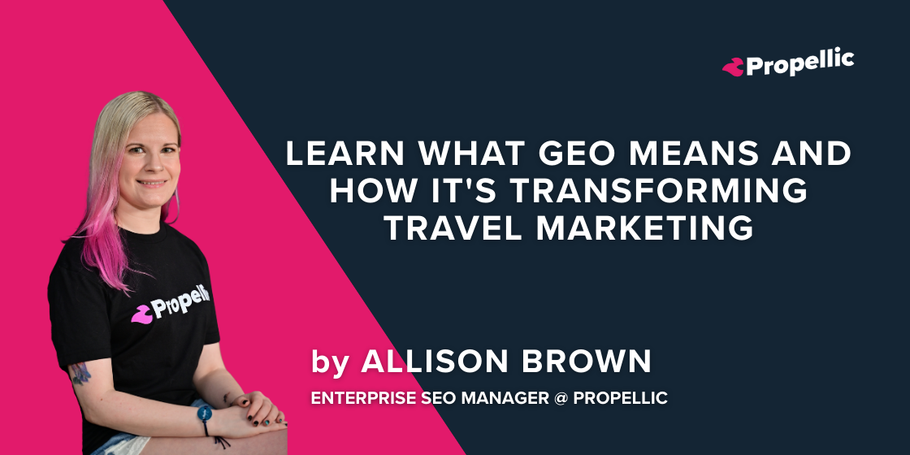There are lots of moving parts that go into creating an effective SEO strategy, but undoubtedly one of the most important is your choice of keywords and their use on your site.
Keywords are what instantly show both human users and Google's bots what your business is all about. If you're clear about the products and services you provide and optimize your site accordingly, you'll be in a much better position to reach potential customers. After all, the sites listed on Google's first page generate, on average, 91.5% of traffic share. Those stakes are simply too high to leave to chance.
Simply put, your keyword ranking matters. If you aren't focusing on keyword research, you're probably not doing everything in your power to improve your SEO. To that end, we're sharing some major keyword missteps in today's post. If you make any of the following mistakes, you'll want to rethink your strategy and contact a reputable SEO agency to take over.
MISTAKE: Being Unrealistic With Your Keywords
In order to develop an effective SEO strategy, you need to know your industry like the back of your hand. No matter your niche, there are likely some search terms that are considered highly competitive. In other words, you probably won't ever be able to rank on page one for these terms -- particularly if your business is small and your budget is limited.
That does NOT mean your website can't rank on page one. It just means it may not be able to rank on page one for certain search terms. For example, a newly established law firm decides they want to go after the term "attorney." There are so many lawyers -- operating both locally and on a global scale -- that a relatively new website has no shot at ranking on such a competitive keyword. Every lawyer wants to rank on page one for the term "attorney." With so many other businesses going after the same term, it's difficult for anyone to actually succeed. Unless you have an unlimited budget and a website that already ranks well in Google, it's next to impossible.
In order to avoid wasting endless time and money on trying to rank on this kind of keyword, it's essential to be realistic. You'll actually have more success if you choose a more specific search term, rather than something broad that encompasses your whole website. While "attorney" could certainly be used in your web copy and blog posts, you'll fare better to focus on something like "real estate attorney Tampa" or "DWI lawyer in Bucks County." These keywords are probably more in line with what an everyday person will search for online, as they're more geared towards a location of practice. Less competitive synonyms with search volume can be good alternatives, as well.
Ultimately, it's important to be honest with yourself about what kinds of keywords you can and should go after. Conducting thorough keyword research and sticking to a budget can allow you to narrow down your choices - especially when it comes to local SEO services.
MISTAKE: Conducting Shoddy Keyword Research
Some business owners are under the impression that no one knows their customers better than they will. That might be true when it comes to existing customers, who are loyal and who may not be seeking out competitors on the internet. But if you want to attract new clientele, you need to put your ego aside and realize you don't know everything about what they're searching for online.
The reality is that keyword research can be a tedious and frustrating process. It's something that, as someone running your own business, you may not actually have the time or energy to do in the way you actually deserve. You also may not have access to the high-quality tools that an SEO agency will, which can limit your ability to do this research correctly and completely. In the end, this can frustratingly result in more questions than answers.
When it comes to your SEO efforts, you can’t afford to merely make guesses about the terms consumers use or how you might be found on the internet. If you don't have the research to back it up, you'll never be able to grow your business in the digital realm. Careful keyword research is key for any successful strategy. If you phone it in, you probably won't be pleased with the result, and that’s why it's a good idea to hire an SEO analyst to conduct keyword research for you. You'll gain insight into your industry and your customers without having to sacrifice your valuable time, energy, and sanity.
PRO TIP: If you're having trouble selecting keywords, try out this new keyword tool we've been using. We're big fans.
MISTAKE: Using Keywords In Ways That Won't Help You
Performing ample, ongoing keyword research can inform you about what customers are seeking and how you can better market your site to appeal to their problems and questions. That said, sometimes keyword usage requires a gentle touch. Subtle differences in how keywords are utilized can make all the difference between a successful campaign and one that doesn't pay off.
You need to use keywords that are relevant to your industry and what you're offering customers. You might find a particular keyword that has a lot of search volume but isn't directly related to what your business is about. Alternatively, you might land on a keyword that describes something you sell but that might also show up in a lot of unrelated searches. Keywords that are overly broad or that are unrelated to your business really have no place in your SEO strategy. You might think that using them could allow you to game the system and get noticed, but the truth is that you won't be targeting the right consumers by using these terms -- you could even hurt your rankings in the process.
Choosing niche terms with no search volume won't help you either. You might think you can avoid an ultra-competitive keyword phrase by using your thesaurus to come up with another option. The problem with that is that if others aren't actually typing that term into their search engines, you'll have virtually no hope of ranking on it. Ignoring the type of language your audience uses means that no one will be using the terms you choose -- so while you won't have to deal with competitors, you won't be capturing customers, either.
Along those same lines, failing to use location-specific and long-tail keywords will make it difficult for you to connect with your target audience. We mentioned earlier that using overly broad keywords doesn’t usually turn out well. If you underestimate the power of local search results and search queries consisting of more than four words, you're doing yourself a disservice. Long-tail keywords allow you to really zero in on solving a specific problem for a consumer and geo-targeted keywords allow you to be found by consumers within a certain proximity, both of which are extremely important if you want your business to succeed online.
MISTAKE: Going Overboard With Keywords
Doing proper keyword research is only one piece of the puzzle: you also have to know how to use keywords correctly in web copy, blog posts, and code on your site. A lot of business owners incorrectly believe that they need to hit consumers over the head with their chosen keywords in order to rank. Usually, the opposite approach will work in your favor.
In other words, you should err on the side of caution when using your chosen keywords. They should, of course, appear in key spots on your website in order to communicate what your products or services are to Google and to the average human, but there can be too much of a good thing. That's known as over-optimization.
If you over-optimize your site, all the keyword research in the world might not be able to improve your rankings. Even if you're using all of the right keywords, using them too frequently can be a problem. The practice of keyword stuffing, which is exactly what it sounds like, is an SEO no-no. Trying to fit too many keywords into a small space too many times raises a big red flag to Google. It'll also make your website copy and your blog posts sound unnatural, which is a major turnoff to readers. All in all, it's just a bad practice that won't yield the results you want. If you have to question whether your content is over-optimized, the answer is that it probably is.
There are numerous components that go into a viable SEO strategy for small businesses, or any sized business for that matter. Conducting keyword research is just one piece of the puzzle, and it's a highly important one. To ensure that your site has the best chance of rising up in the ranks, it's a good idea to work with a team of experienced SEO professionals. That way, you'll be able to avoid these common mistakes and focus on what truly matters for the success of your organization.
Want To Level Up Your Travel Marketing?
Subscribe to the NavLog, our bi-weekly travel marketing roundup, where you’ll be the first to know about breaking news that impacts travel marketers and access exclusive performance marketing strategies and practical tips you can implement from the marketers at the leading edge of the travel industry.




.png)

.png)

